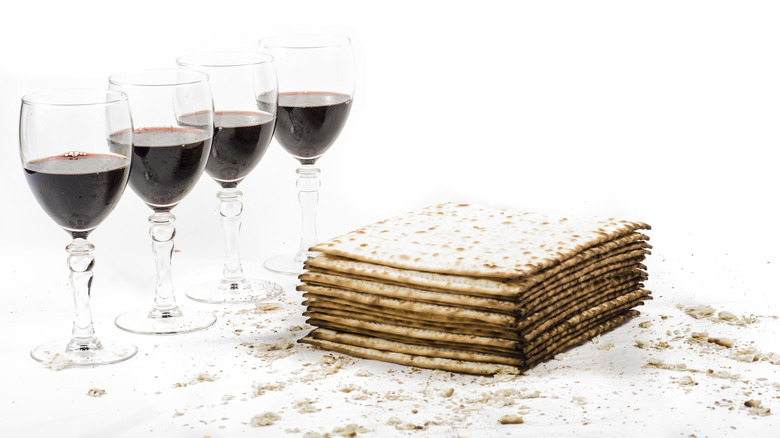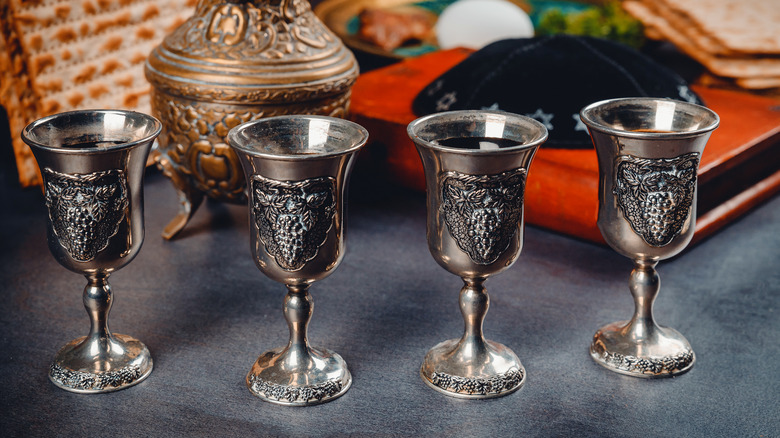The Significance Of The 4 Cups At Passover Seder
Wine holds a special place in Biblical literature and Judeo-Christian religious practices at large. Jesus turned water into wine, Catholics drink wine when taking communion to represent the blood of Christ, and, of course, Jewish people are supposed to drink four cups of wine each, known as arba kosot, during the Passover seder.
Passover, or Pesach, celebrates the liberation of the Hebrews from slavery under the Egyptians. The first night of Passover is celebrated with a feast called a seder, a highly structured meal in which each food element holds special significance. Bitter herbs like horseradish represent the bitterness of slavery, eggs represent the circle of life, and matzah represents the bread the Israelites took when they fled Egypt. It's the perfect embodiment of the old joke about Jewish holidays: "They tried to kill us, we won, let's eat."
But what about the wine? Four glasses sounds like a helpful suggestion when planning for a 15-course meal with your entire extended family, but it's not a mere way to stave off the nerves that come with children turning your house upside down looking for the afikomen.
Wine and deliverance
Blessings over wine are a normal part of Judaism and the weekly Shabbat meal is begun with the reciting of the Kiddush, which sanctifies the wine. The use of wine is a symbol of spiritual joy throughout Jewish literature, but the four cups of wine at Passover take this a step further.
The four cups represent the four terms of deliverance or redemption that God issues to the Jewish people in the book of Exodus: "I will bring you out from under the yoke of the Egyptians. I will free you from being slaves to them, and I will redeem you with an outstretched arm and with mighty acts of judgment," he vowed. These cups of wine are meant to be consumed in a reclining position, which some posit is related to relaxation and freedom, while others believe it is simply done because after four glasses of wine, you'll want to lie down. A fifth cup is often poured (but left untouched) for the prophet Elijah, representing the possibility of future redemption.
Red wine is traditional, and kosher wine may be served depending on how observant the hosts of your seder are, but hopefully, you'll be served something a little more flavorful than a dusty old bottle of Manischewitz. Though after four glasses, you might not even mind.

